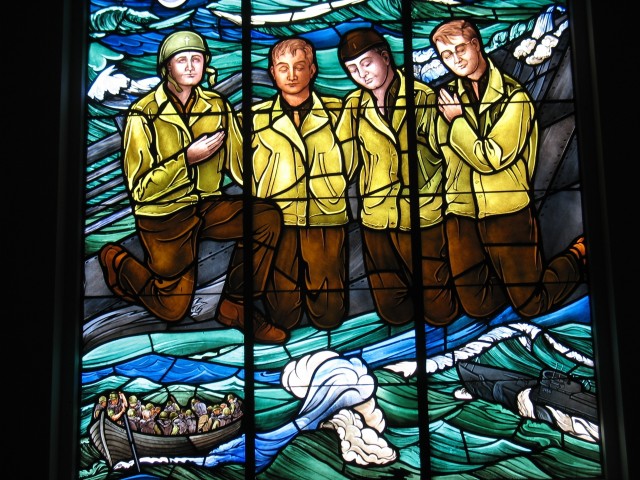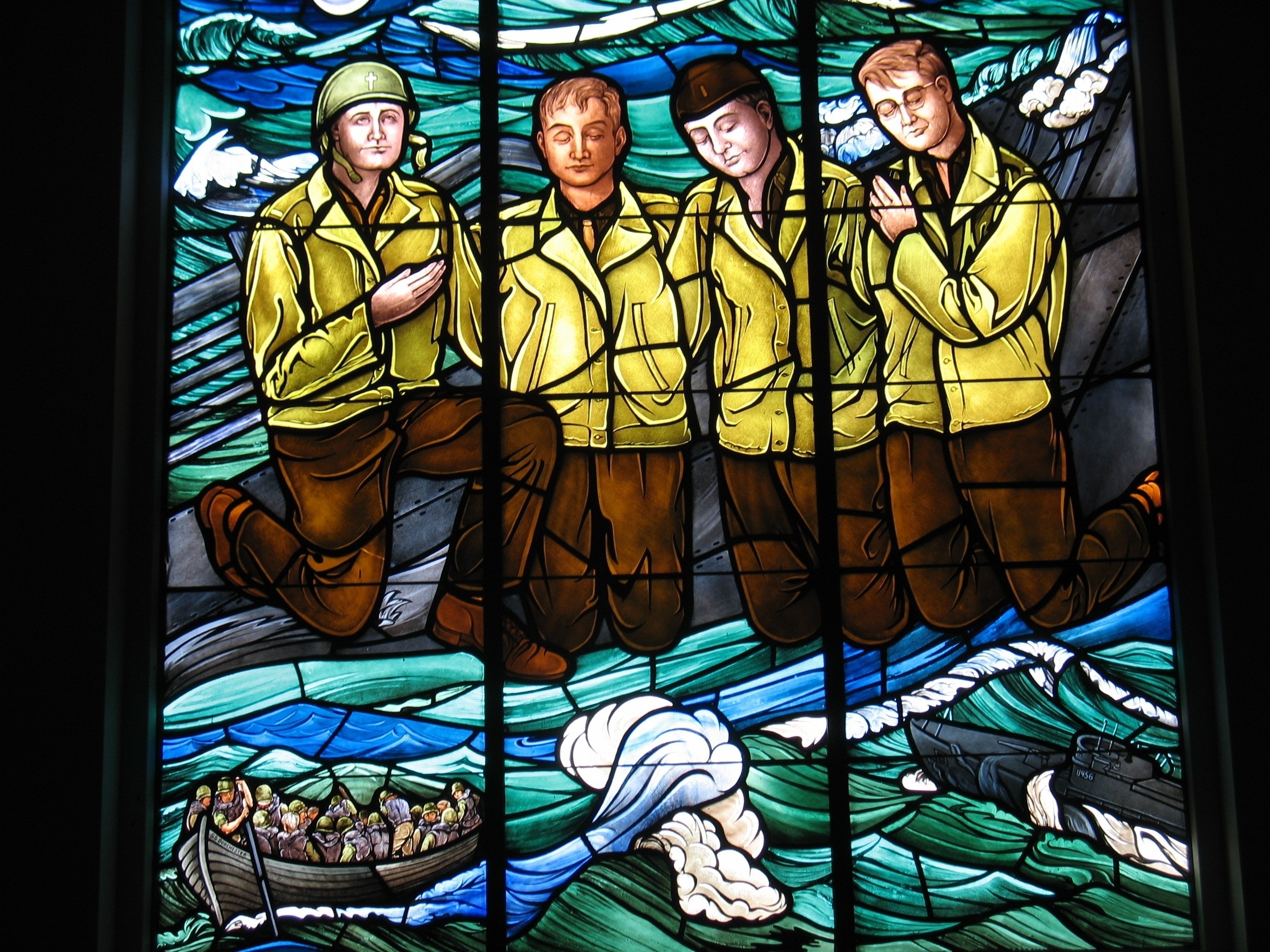By January 1943, the Battle of the Atlantic was being fought at a feverish pace. Allied convoys continually sailed to the England and other destinations as the buildup began for the opening of the second front in Europe. This provided many targets to GermanyAca,!a,,cs highly trained and aggressive U-Boat force. Deployed along picket lines beneath the waves, the Aca,!A"WolfpacksAca,!A? patiently waited for an opportunity and then swarmed convoys in a blaze of torpedoes and explosions.
The dark night sky and calm seas provided a perfect opportunity for the U-223. The surfaced submarine tracked the three, slow moving silhouettes of the convoy ships. Among them was the United States Army Transport (USAT) Dorchester. The ship was outbound from Halifax and was carrying 904 replacement troops to Greenland. Among the passengers were four chaplains accompanying the troops: Reverend George L. Fox (Methodist), Reverend Clark V. Poling (First Dutch Reformed Church), Rabbi Alexander D. Goode (Jewish), and Father John P. Washington (Catholic). As the ship sailed, towards its destination, the U-boat crew prepared to engage. After triangulating the speed of and the distance to his target, the Dorchester, Kapitanleutnant (Lieutenant-Commander) Karl-Jurgen WAfA$chter, unleashed a spread of three torpedoes. Two of the Aca,!A"eelsAca,!A? found the hull of the large ship. Since the torpedoes hit below the waterline, there was not a large explosion, so there was some hesitation in ordering the passengers and crew to abandon ship. One of the detonations knocked the power out and darkened the entire vessel.
The blackened conditions, only added to the panic of the inexperienced inhabitants of the vessel. In all of this confusion, the chaplains made their way to the main deck where there was nothing but terror and chaos. Crew members were struggling with the lifeboats; the cold February air froze the cables, and the boats that were lowered were over their capacity. In the midst of all of the confusion, the chaplains remained calm and did their best to reassure the young Soldiers and crew. In the excitement, many men hastily made their way topside without their lifejackets. The chaplains selflessly gave theirs up to some of these unfortunate men. Only 299 survivors were rescued from the icy Atlantic waters that night.
The fatally damaged ship slipped beneath the waves in a little more than twenty minutes. Eyewitnesses recounted that the chaplains remained together on the deck, grasping the railing and praying in their respective faiths as the Dorchester made its final plunge.
These four men of faith in a brief period extolled not only the values of faith but also of the Army. Chaplains have always been an invaluable asset to the Army and its leaders. On the night of February 3, 1943, they were an island of faith and courage in an ocean of terror and turmoil.
In 1961, President Dwight D. Eisenhower posthumously awarded all four chaplains the Chaplains Medal for Heroism, the Distinguished Service Cross, and the Purple Heart medals. This is the only instance in which the Chaplains Medal for Heroism has been awarded.


Social Sharing